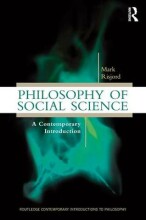Summary: History Of Political Thought
- This + 400k other summaries
- A unique study and practice tool
- Never study anything twice again
- Get the grades you hope for
- 100% sure, 100% understanding
Read the summary and the most important questions on History of Political Thought
-
Lecture 1 & 2
This is a preview. There are 39 more flashcards available for chapter 02/02/2021
Show more cards here -
What is the biggest difference between the approach of textualist/universalist and contextualist political philosophy?
Universalists believe that history has a lot of constants, so big questions remain in history. Contextualists believe that every time is unique and incomparable -
How was Plato linked with the "Thirty Tyrants": the thirty antidemocratic rulers that were installed by Sparta after the Peloponnesian War with Athens?
One of them was the cousin ofPlato's mother and the other one was his uncle, the brother of hismother -
What was Socrates convicted of and what did he get as his punishment?
In 399, Socrates got the death penalty for not believing in the city's gods, introducing new gods and corrupting the youth -
What was the main philosophy about knowledge of Socrates that inspired many followers including Plato?
That no one possesses moral knowledge, and we must spend our lives searching for it -
Why could Socrates not be typified as a democrat nor as an anti-democrat?
For instance, he fought in Apologia (his defense in trial) against the Thirty rulers that had been appointed, but thought also that one should follow the commands of an experts and pay no attention to the opinions of the many -
How does Plato portray Socrates?
As a man of penetrating insight and great augmentative skill, that he uses in conversations to get people to philosophize, and Plato uses that same strategy on the readers -
What did Plato after 399 when Aristotle died?
He left Athens and visited thinkers of the Pythagorean school, and later when he returned to Athens, he established "the Academy" -
What were the ideas of the Pythagorean school?
They held that the human soul isreborn in to other human and animalbodies after death and they were interested inmathematical relationships in for example music -
What is the inconsistency that Socrates has in death and life after death?
In Apology he consists that we cannot know what comes after death, but in Phaedo (the final conversation before drinking poison), he presents arguments for the immortality of the soul -
Why insists Plato that philosophers should first be trained as mathematicians before they can philosophize?
Because realphilosophers are those whose understanding of value is based on their study on theforms , and inparticular theforms of the "good", which goodness has amathematical nature
- Higher grades + faster learning
- Never study anything twice
- 100% sure, 100% understanding

































